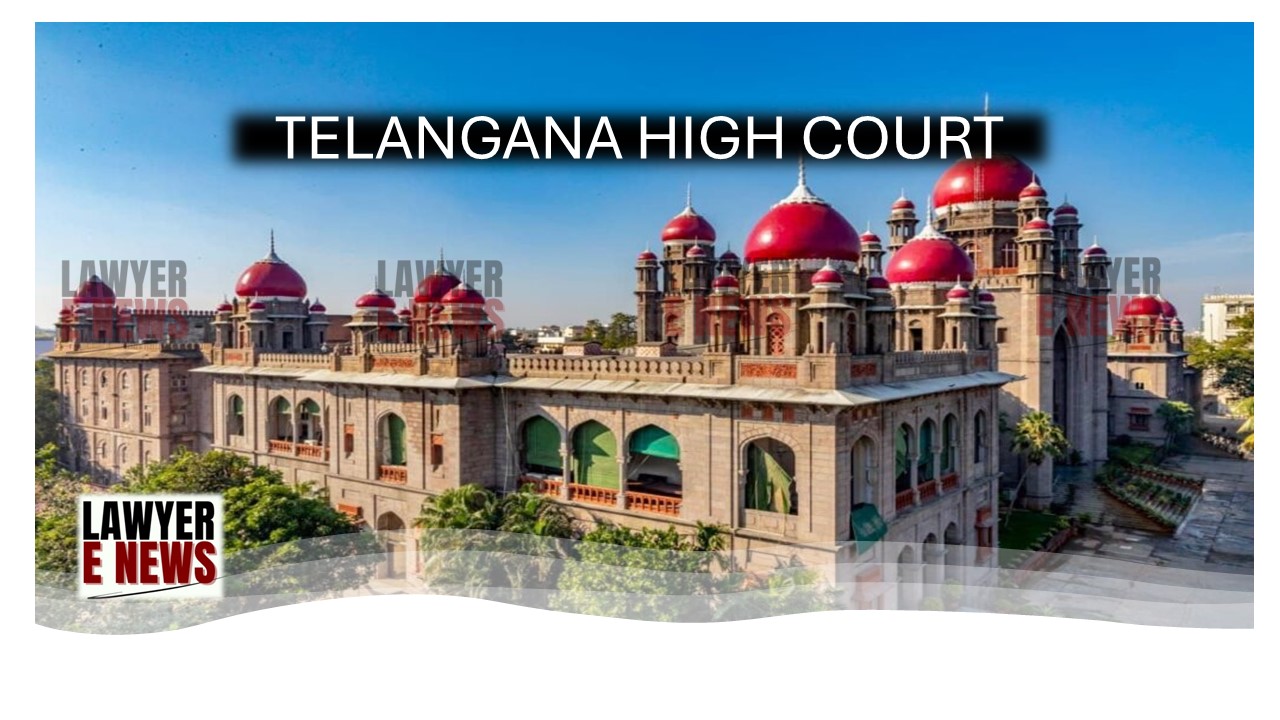-
by Admin
15 February 2026 2:16 AM



Telangana High Court, presided over by Justice K. Sujana, dismissed a criminal petition filed by Pottur Sivayya, accused in a case involving human trafficking and sexual exploitation under Section 370(A)(2) of the Indian Penal Code (IPC), 1860, and Sections 3 to 5 of the Immoral Traffic (Prevention) Act, 1956. Sivayya sought to quash the proceedings against him, arguing that as a customer, he should not be prosecuted for human trafficking-related offenses.
However, the court rejected this plea, holding that customers who knowingly engage trafficked persons for sexual exploitation are punishable under Section 370(A)(2) of the IPC. The judgment once again underscores the irrelevance of victim consent in cases of human trafficking and highlights the legal responsibility of those who exploit trafficked persons, even as customers.
The case against Pottur Sivayya stems from a police raid conducted on January 8, 2022, in Baghyanagar, Kukatpally, following credible information that a prostitution racket was operating in the premises. Sivayya, along with accused No. 1, was caught on the spot with a trafficked victim. Accused No. 1 was charged with procuring the victim for illicit sexual exploitation, while Sivayya, as a customer, was arrested and booked under Section 370(A)(2) of the IPC.
The police registered a case under Crime No. 33 of 2022 and, after completing the investigation, filed a charge sheet against Sivayya in P.R.C. No. 237 of 2022 in the court of the XII Additional Metropolitan Magistrate, Cyberabad at Kukatpally. Sivayya's counsel argued that the petitioner, being a customer, should not face charges under Section 370(A)(2), as he did not participate in trafficking but merely sought sexual services.
The central issue in the case was whether Section 370(A)(2) of the IPC, which deals with the exploitation of trafficked persons, applies to customers like Sivayya. Section 370(A)(2) states:
“Whoever, knowingly or having reason to believe that a person has been trafficked, engages such person for sexual exploitation in any manner, shall be punished with rigorous imprisonment for a term which shall not be less than three years, but which may extend to five years, and shall also be liable to fine.”
Sivayya's defense contended that the section applies only to traffickers, not to individuals who engage in consensual transactions with sex workers. His counsel further argued that Sivayya was not involved in the trafficking process and should not be charged under this stringent law.
Consent of the Victim is Irrelevant in Trafficking Offenses
The Telangana High Court rejected Sivayya's arguments and upheld the charges. Citing previous rulings, including Thanna Bhargav Kumar v. State of Telangana and Gangasani Anil Reddy v. State of Telangana, the court reiterated that the offense of trafficking under Section 370(A)(2) is not contingent on the consent of the victim. The court clarified that customers are as culpable as traffickers if they knowingly exploit trafficked persons, and the law holds them accountable regardless of the victim's consent.
Justice K. Sujana emphasized that the consent of trafficked persons is immaterial in determining offenses under Section 370(A)(2), as per the explanation provided in Section 370 of the IPC. The court held:
“The consent of the victim is immaterial in the determination of the offense of trafficking. When the consent is immaterial, the voluntariness of the victim engaging in the act cannot be considered.”
The court ruled that Sivayya, having engaged in sexual exploitation of a trafficked person, falls squarely within the purview of Section 370(A)(2), making him liable for prosecution under this section.
The court relied on several prior judgments to support its ruling:
In Thanna Bhargav Kumar v. State of Telangana, the court held that customers engaging trafficked persons for sexual exploitation are punishable under Section 370(A)(2).
In Gangasani Anil Reddy v. State of Telangana, the court ruled that customers who are aware that the victims are trafficked and still proceed to exploit them are culpable under Section 370(A)(2).
The court also cited Chinthala Shiva Rao v. State of Telangana, where it was held that engaging in sexual intercourse with trafficked sex workers constitutes sexual exploitation under Section 370(A)(2) of the IPC.
After reviewing the facts of the case and the legal precedents, the court dismissed the petition filed by Sivayya. Justice Sujana noted that the petition lacked merit, as the charge sheet clearly indicated that Sivayya had engaged a trafficked woman for sexual exploitation, thereby fulfilling the requirements of Section 370(A)(2).
The court's decision reinforces the legal position that even customers who engage in the exploitation of trafficked persons are culpable under Indian law. The judgment ensures that human trafficking, including its demand side, is treated as a serious offense, holding all participants accountable.
The Telangana High Court’s ruling in Pottur Sivayya v. The State of Telangana marks an important reaffirmation of the legal principle that the consent of the victim is irrelevant in cases of trafficking. The court's dismissal of the petition ensures that customers, like traffickers, face criminal liability for their role in exploiting trafficked persons. This decision upholds the stringent provisions of Section 370(A)(2) of the IPC and sends a strong message against the exploitation of vulnerable individuals.
Date of Decision: October 4, 2024
Pottur Sivayya v. The State of Telangana
